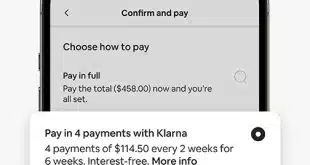BitPay Inc., a payment processor for digital Bitcoin payments, has integrated its services with Amazon.com Inc.’s Fulfillment-by-Amazon Web service. It’s the first move into large-scale e-commerce for companies wishing to accept Bitcoin payments over the Bitcoin peer-to-peer network, Atlanta-based BitPay says.
Fulfillment-by-Amazon (FBA) allows a seller with inventory in Amazon’s warehouses to sell the items on the seller’s own Web site, and have Seattle-based Amazon fulfill and ship the order. Amazon itself is not accepting the Bitcoin virtual currency. Products sold through FBA qualify for Amazon Prime and free Super Saver Shipping. The BitPay/FBA service will be available to sellers in the U.S., United Kingdom, Germany, France, Italy and Spain.
BitPay’s integration with Amazon works with WordPress.com Web publishing software and WooCommerce, an e-commerce platform for WordPress. But BitPay says it also plans to add the Amazon integration into other shopping cart platforms.
Meanwhile, another Bitcoin transaction services company announced last week that hackers broke into one of its brokerage accounts, stealing more than $12,000 worth of the digital currency, according to Wired magazine. No customers were affected by the hack although the company lost Bitcoins, Wired reported.
Bitcoin is an electronic currency developed and maintained by a decentralized network of cryptologists and application developers. It offers anonymity, international utility, and inflation protection, and has no connection to existing payment systems. Users can download software from a number of so-called exchanges that provide Bitcoins at prevailing exchange rates. Specialist processors serve merchants.
To send Bitcoins, users enter the recipient’s e-mail address and the amount to be transferred. The user’s computer then digitally signs the transaction and sends the information to the Bitcoin network. The network verifies that the person sending the Bitcoins is the current owner. Once the transaction is validated, recipients can spend the Bitcoins. The process, which typically takes a few minutes, is not reversible.
The attack, which occurred Thursday, Feb. 28, knocked processor Bitinstant offline over the following weekend. According to a blog on the Bitinstant site, the hackers took control of Bitinstant’s Internet domains by convincing its domain registrar, Site5, to hand over control of the company’s Domain Name Service. After gaining control of the DNS, the hackers had access to Bitinstant’s e-mail, did an online password reset at a Bitcoin exchange called VirWox and siphoned $12,480 from Bitinstant’s account.
The Bitinstant hacking is the most recent in a series of data breaches experienced by Bitcoin exchanges. In March 2012, a well-known Bitcoin trading platform, Bitcoinica, announced a security breach in which hackers stole 43,554 Bitcoins. And last May, Bitcoinica reported a second security breach, resulting in the loss of 18,547 Bitcoins. Bitcoinica shut down following the second breach, which resulted in an estimated $90,000 loss. Other Bitcoin exchanges are still in operation.





